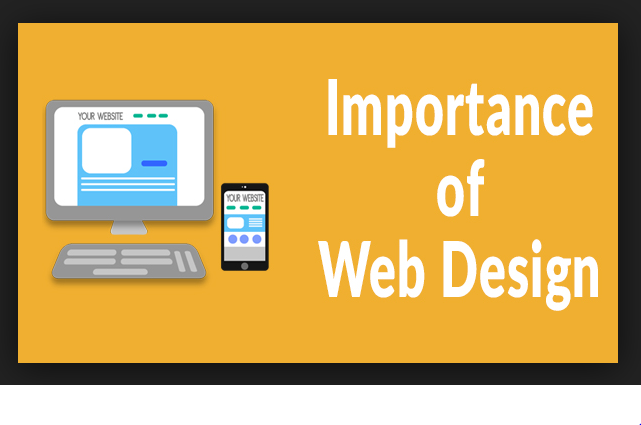To get started as a web developer, of course you’ll need the key skills like:
(You can learn them—and much more—at Bizmarrow technologies)
But is that enough?? When you’ve got the coding basics and some bonuses down, are you REALLY ready to start your job search?
Here are 11 ways to get your phone ringing or email box filling up with invites to interviews. Get started with them today. The sooner you do, the sooner you’ll be a happily-employed developer!
11 must-dos to land your first web developer job
1. BUILD YOUR OWN PORTFOLIO SITE
Creating your portfolio is JOB ONE if you want to get a developer job. Your portfolio is the first thing potential employers will look at when considering you, so it needs to be a real reflection of your skills and yourself.
You can get ideas about what to put in your portfolio in step #2. But, before you can load up your portfolio, you need to code it and launch it on the wonderful World Wide Web.
2. FILL UP YOUR PORTFOLIO WITH PROJECTS
Now that you’ve got your own site built, it’s time to load it up with all the things. Of course, you’ll include any work you’ve done for companies or clients (with their permission).
3. DO FREELANCE PROJECTS
Speaking of projects, a great way to get some for your portfolio is to do some freelancing on the side. It’ll give you the chance to build your experience AND beef up your bank balance while helping you round out your portfolio. The projects don’t have to be huge ones. You can offer, for example, to re-do the navigation for a local restaurant’s website or to create an HTML newsletter for a charity organization.
4. PUT YOUR CODE ON GITHUB
GitHub is the industry-standard for version control, so many companies want to know that you already know how to use this tool. You can prove that AND show off your best code by creating your own GitHub account and using it as a repository for your projects.
After you get it set up, try to make regular contributions to your GitHub account to show that you’re consistently working on your skills. Even if they’re only for “imaginary” projects, keep your code clean and organized and include clear and concise README documentation so that employers know that you’ll be able to jump right in to collaboratively coding on their teams and projects.
5. CONTRIBUTE TO AN OPEN SOURCE PROJECT
If most of your coding so far has been for your classes, or solo gigs, you can also increase your teamwork credit by getting involved in an open-source project.
Open source is the term for source code that’s publicly available and can be modified by anyone. And there’s an incredible range of open source projects, including famous ones like Ruby on Rails, Linux, MySQL, and loads of JavaScript frameworks.
Getting involved in open source projects will:
Strengthen your development skills
Get you hands-on experience working on teams and projects
Let you meet and network with other developers
6. MEET fellow TECH people ONLINE AND In Real Life
In addition to fame and glory, hopefully you’ll also get contacts in tech, but don’t let the networking stop there. Keep reaching out and learning more about the industry by meeting people online and in person. Whether you meet in person or on the Internet, you’ll be expanding your horizons and getting to know people who can turn out to be your future co-workers or superiors.
7. FOLLOW INDUSTRY NEWS
To prevent you from being tongue-tied at the small talk phase when you meet all those fellow tech people OR during your first web developer job interview, start keeping up with what’s happening in tech.
You don’t need to be an expert on every story or topic out there. Just get to know what’s hot and what’s happening. And that’s beyond easy to do: You can read blogs or tech news sites, or scan Twitter lists.
8. LEARN MORE!
Besides keeping up on the news, you should also keep up with learning new skills and tools of the trade. As a web developer, knowing these will make you that much more in-demand.
A few that are most requested are:
CSS preprocessor like Sass
Frameworks like Backbone.js, Angular.js, or Node.js, etc. or Ruby on Rails
A CMS (Content Management System) like WordPress
And you can explore the wonderful world of Ruby through a number of resources or try the WordPress Developers Blueprint to learn the world’s most popular CMS.
9. REFINE YOUR RESUME
Even though your portfolio is where you’ll show off your skills, a lot of companies still ask for resumes and use them to “weed out” candidates. That means yours needs to be as polished and professional as your portfolio if you want to get noticed AND hired.
Of course, you’ll want to update the information on your resume to fit web development. Also make sure you highlight your core skills, play up any tech-related experience, and give specific details to prove your achievements and strengths.
10. CHECK OUT THE JOBS
Now that you’ve made the extra effort with these must-haves, it’s time to dive into some actual job listing. Start by just searching for “ web developer” and not worrying about the company or the location. The idea is for you to see what employers are looking for and what kind of options are available for you in general.
Keep in mind that job ads tend to list more (sometimes WAY more!) requirements and “nice-to-haves” than are really expected from candidates. Never hurts to ask, right?! Don’t let this discourage you though. If you can handle most of what they’re looking for, you’ll probably be at least considered for the role.
Once you’ve gotten a feel for what’s out there, go ahead and send out your resume for some jobs you’re really interested in. Be realistic but don’t be shy. Nobody’s going to come knocking on your door with a web dev position in hand. You have to put yourself out there.
11. INTERVIEW FOR A JOB – EVEN IF YOU’RE NOT SURE YOU’RE READY
When that shiny happy moment happens and you’re asked to go for an interview, go for it! THIS is the moment you’ve been waiting for! You can never be 100% prepared for any interview, but you know how hard you’ve worked for this so show them what you’ve got.
No matter how it goes, you’ll have survived that nerve-wracking first interview, which will make the next one that much easier. Plus, you’ll have a much better idea of what future interviews will be like and what you need to work on for them. And maybe not surprisingly, there’s no better preparation for a job interview than a job interview. In no time at all, instead of just applying for junior web developer positions, you’ll be accepting your first one!







